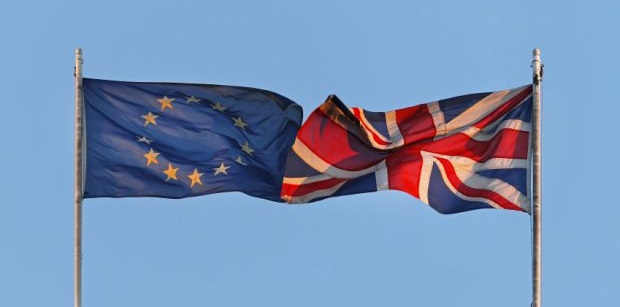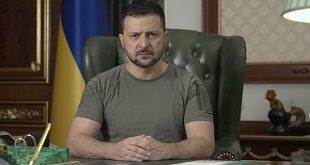
London, United Kingdom | AFP | The fate of Theresa May’s tortured Brexit deal now appears to rest squarely with Arlene Foster — a Northern Irish ultra-conservative politician whose father was shot in the head by the IRA.
She has been thrust into the global spotlight by a confluence of events that included May’s miserable performance in a 2017 election and Britain’s decision to leave the EU the previous year.
It is a role that the 48-year-old has previously preferred to play from behind the scenes in Belfast.
Foster heads the staunchly pro-Brexit Democratic Unionist Party (DUP), whose 10 members of parliament are key to keeping May’s minority government in power.
She is not herself an MP, keeping her highly influential role out of the public eye.
Yet this week, as parliament held a series of momentous votes, she found herself exchanging pleasantries with US President Donald Trump at a lunch in Washington hosted by House Speaker Nancy Pelosi.
She is widely expected to spend the weekend talking to May’s confidants about getting the Brexit deal over the line in a vote next week which is meant to settle when Britain breaks from the other 27 EU states.
It is an astonishing rise for a child of “The Troubles” that killed thousands in her sectarian violence-riven province.
The passion and fervour of those blood-soaked years comes through in the way Foster speaks — and defines the unshakable core of her politics.
“When you come to the end of a negotiation, that’s when you really start to see the whites in people’s eyes,” she told the BBC in Washington on Thursday.
Foster noted that there were some Brexit issues – or “lines” — on which Northern Ireland would simply not be pushed.
“The red line is blood red,” she said in October.
– Politics born in violence –
Foster was just eight when her policeman father barely survived a 1979 attack by Irish Republic Army (IRA) paramilitaries.
It forced her family to flee the small farm where they lived for the relative safety of the nearby town.
Violence underpinned Northern Irish life in Foster’s youth.
She was 16 when her school bus was blown up in another attack by the IRA aimed at killing its driver — a part-time member of the UK security forces.
“It is part of who I am and can’t be denied,” Foster said of those attacks in a 2015 interview with The Belfast Telegraph.
“It informed my teenage years. It informed my political decisions.”
Foster went on to graduate from Queen’s University in Belfast with a law degree and met her husband Bryan while practising as a lawyer.
They have three children.
– Staying part of Britain –
Foster honed her politics at university as a member of the youth wing of the Ulster Unionist Party (UUP) — the dominant force in Northern Ireland since its creation in 1922.
She followed her election to the local assembly in 2003 by switching allegiance the following year to the blossoming DUP group founded by the fundamentalist Protestant preacher Ian Paisley.
Foster acknowledged the difficulties of working in a male-dominated party that shared socially traditional views about family life and the role of women.
But she managed to quickly rise through the ranks and held various ministerial posts before becoming the provincial government’s leader in 2016-17.
Infighting and a corruption scandal that Foster battled through largely unscathed brought down the government.
Yet her government’s fall has done little to bend the defining Brexit position of the DUP — Northern Ireland must remain wholly British and keep an open border with Ireland once an UK-EU frontier goes up.
“It’s very simple: what it will take to get the DUP over the line is the fact that Northern Ireland is not left behind,” Foster said in Washington.
 The Independent Uganda: You get the Truth we Pay the Price
The Independent Uganda: You get the Truth we Pay the Price


